Torr on Survey |
| [The survey form] [1. The Mission] [2. Use a Database !] [3.
Devote Yourself !] [4. Sour Losers] [5. Flexible concentration] [6. Holistic Chess] [7. Why move at all ?]
[8. The Tutorr's 15 Guidelines]
[9. Feedback page] [10. Downloads] Act like a sportsman ! How do you feel about losing a chessgame ? Personally, I get pissed when losing... no matter the position, no matter the opposition...and exclaiming hundreds of poor excuses why I lost is not unknown to me. Familiar with this kind of scenario ? My guess is that the unpleasant experience of bad losers is quite common to chessplayers. However, the data from the chess player survey clearly demonstrate that chessplayers, weak and strong players alike, are well-behaved good losers (Table 19) and sportsmenlike good winners ! (Table 21). Even though the terms 'good/bad winners' were not clearly defined in the survey question 19, the answers give a clear picture of chessplayers being quite well-behaved sportsmen. Surprised ? Well, the data suggest that one out of four players is a sour loser (Table 19), whilst only every tenth player is a poor winner (Table 21), whatever that may be. The figures differ only slightly through the five rating categories, thus illustrating similar personality traits with weak and strong players alike towards these questions, perhaps a rather unexpected finding. Somehow I find the results above hard to believe ! Both when comparing to my personal experiences, and in particular when considering that most players state that winning and/or losing arouses strong feelings in them ! (Table 23). More than 75 % of the players in each rating group have serious levels of 'emotional' responses towards winning/losing. How can you be a good loser with steamy feelings ? Beats me ! Well, perhaps chess players are just good at subliming their feelings into the pursuit of the game...or perhaps into the analysis of their mistakes. Improve
your chess via your lost games ! Use your lost games even more
|
Q20. I use my lost
games |
Q22. It is very
important to win (4) |
Increase
the importance of winning ! Increase the importance of winning !
Make chess a part of your lifestyle !.
|
| Disclaimer
The data presented here and in the following articles can be analyzed
and concluded upon in many ways (remember that the survey was
scored on-line, and that the data may not be representative of
all chessplayers alike). The conclusions presented here are mine
entirely. Feel free to disagree, to have your own interpretations
and to impove your chess in the manner that suits you. The full
material of data will be published in the last article of this
series. If you have questions prior to this, or other comments,
feel free to mail me on torr@privat.dk
Copyright The contents on this page (graphical, textual) may not be reproduced without permission from the author. On citations or similar use, please credit the author Dr. Tor Rønnow, Denmark (mail: torr@privat.dk) |
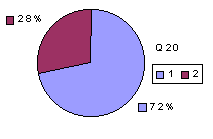
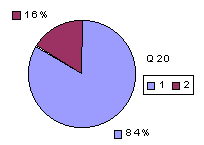
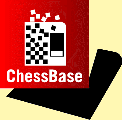
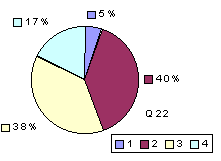
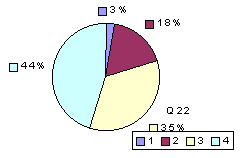
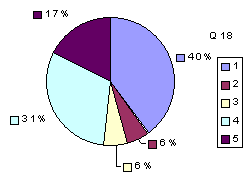
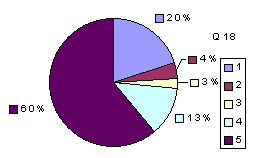

.gif)